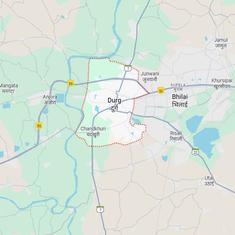Pakistan rules out accepting any change to Indus Waters Treaty with India
Special assistant to Prime Minister Nawaz Sharif Tariq Fatemi said Islamabad's position was based 'on the principles enshrined in the treaty'.
Pakistan on Friday ruled out accepting any change or modification to the 1960 Indus Waters Treaty with India, a day after New Delhi said it was willing to resolve its differences with Islamabad on the issue bilaterally, Dawn reported. Special Assistant to Pakistani Prime Minister Nawaz Sharif Tariq Fatemi said Islamabad’s position was based “on the principles enshrined in the treaty”.
“The treaty must be honoured in...letter and spirit,” Fatemi said. On Thursday, Indian Ministry of External Affairs spokesperson Vikas Swarup had said there was no reason why objections raised by Pakistan on the design parameters of projects could not be resolved by experts from both countries, according to Hindustan Times. “There are examples available where such matters had been successfully resolved bilaterally within the Permanent Indus Commission (such as the height of the freeboard for Kishanganga) or between the two governments,” Swarup added.
Swarup’s remarks came after the World Bank on Tuesday had suspended the separate processes initiated by India and Pakistan under the Indus Waters Treaty to give the neighbouring nations time to mull over other ways to resolve their disputes. The development puts the proposed appointment of a neutral expert, requested by India, on hold, in addition to temporarily halting the selection of a chairperson of the Court of Arbitration, as proposed by Pakistan. The World Bank said it expected the two countries to come to an agreement by January.
The World Bank had coordinated negotiations between the nations to ink the Indus Waters Treaty, which divides the flow of six rivers between the countries. According to the accord, India controls Beas, Ravi and Sutlej, while Pakistan holds reign over Indus, Chenab and Jhelum. On August 19, Pakistan had sought the Court of Arbitration’s intervention in the resolution of disputes related to India’s Kishanganga hydroelectric plant project on river Neelum, which merges with the Jhelum in Pakistan, and the Ratle project on river Chenab.









